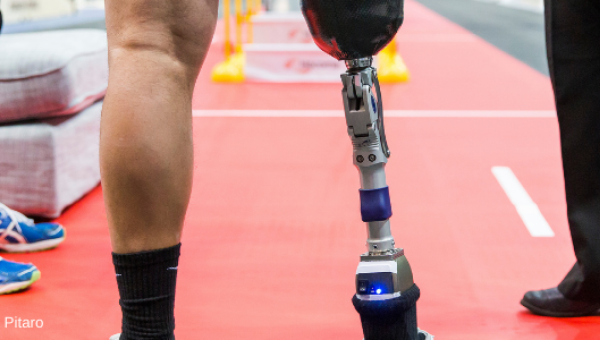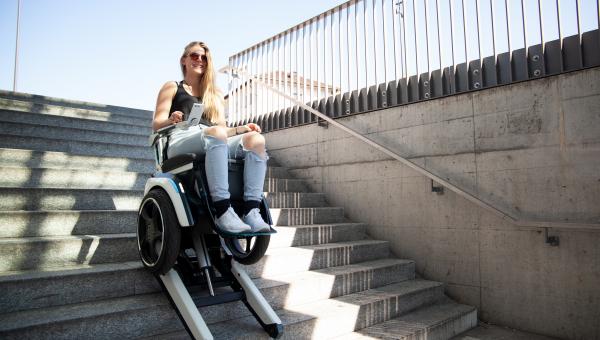Safer intubation thanks to artificial intelligence

A new device that makes AI-assisted tracheal intubations possible is set to help emergency physicians save lives.
Endotracheal intubation – in other words artificial respiration – is one of the most common procedures performed worldwide in emergency departments and operating rooms. Alone in the US more than 15 million intubations are completed annually.
Correctly performed intubation can make the difference between life and death in an emergency. It involves inserting a tube into the patient's trachea to artificially ventilate their lungs. Such intubation becomes necessary when a patient cannot breathe on their own, for example during surgery or in the event of resuscitation. The tube keeps the airway open that would otherwise be obstructed by a lack of muscle tone or reflexes.
Lack of routine for intubation procedures
Although intubation is a common medical procedure, studies show that physicians often lack routine in performing it. Human anatomy is designed in such a way that intubation is only possible with special equipment, and requires a great deal of experience. Anaesthesiologists have such experience, but many other health service providers such as paramedics, emergency physicians and intensive care physicians do not.
Our mission is to save lives.
An all-in-one solution for tracheal intubation
This is where the Swiss start-up aiEndoscopic plans to revolutionise the modern world of endoscopy. The first step is its initial product intuBot: with the help of computer vision software and artificial intelligence, the doctor is shown how to insert the endoscope correctly and takes over a large part of the work completely. This is particularly helpful for emergency intubations outside of hospitals, for example for accident victims.
Self-driving vehicles as initial inspiration
The start-up, founded in 2021, emerged from a joint research project of ETH Zurich, the University of Zurich and the University Hospital of Zürich. It won the Swiss Innovation Challenge 2022, which shows that it is on the right track. According to a recent interview, the idea of aiEndoscopic dates back to 2017, when Prof. Dr. Peter Biro, an experienced anaesthesiologist from the University Hospital of Zürich asked himself how it was possible that self-driving vehicles already exist but intubation procedures were still mainly performed manually. This question sparked four years of research that have made it possible to apply artificial intelligence, combined with robotics, to the field of endoscopy as well.




